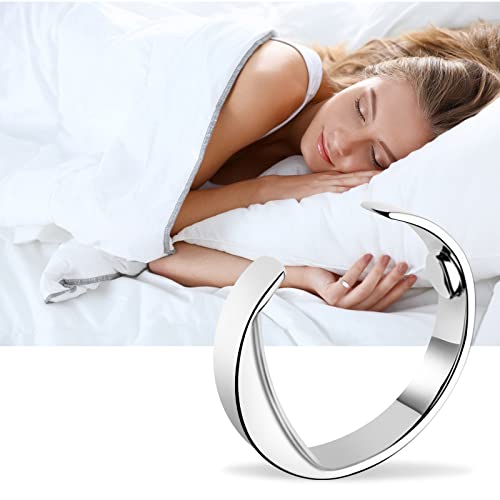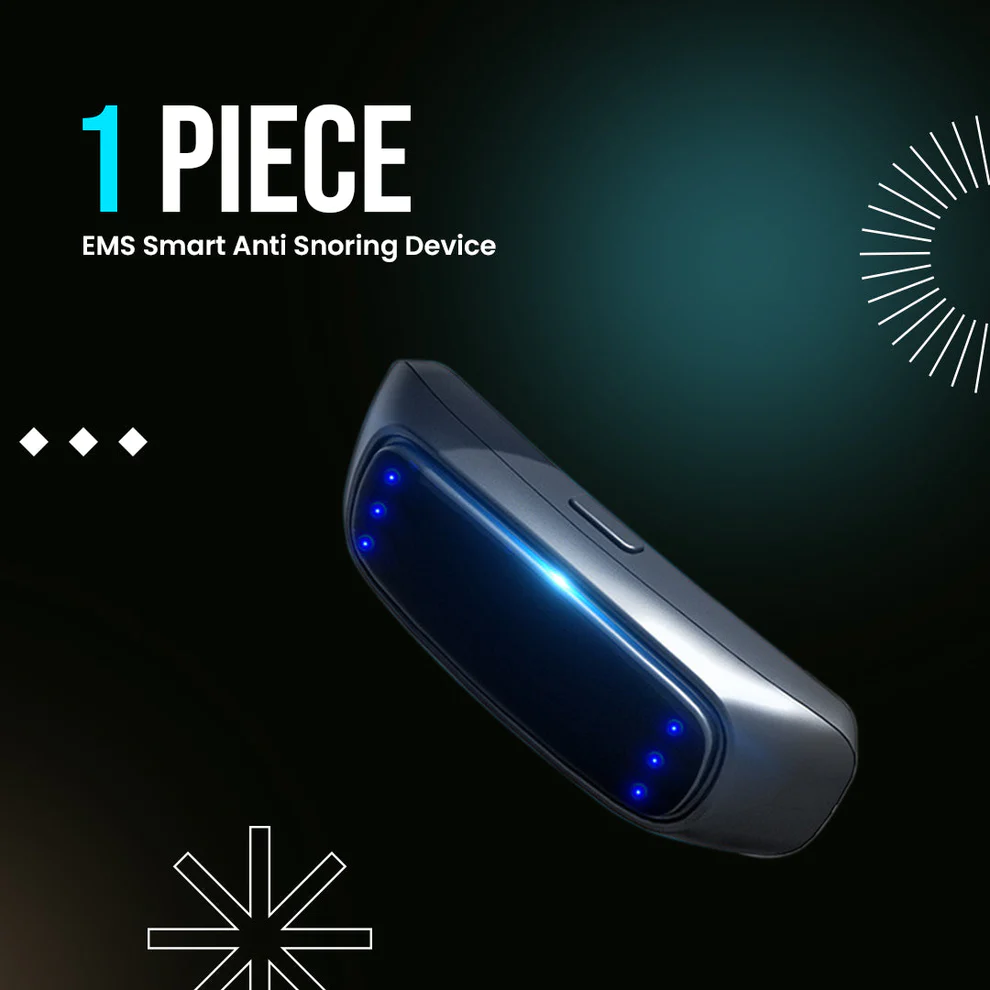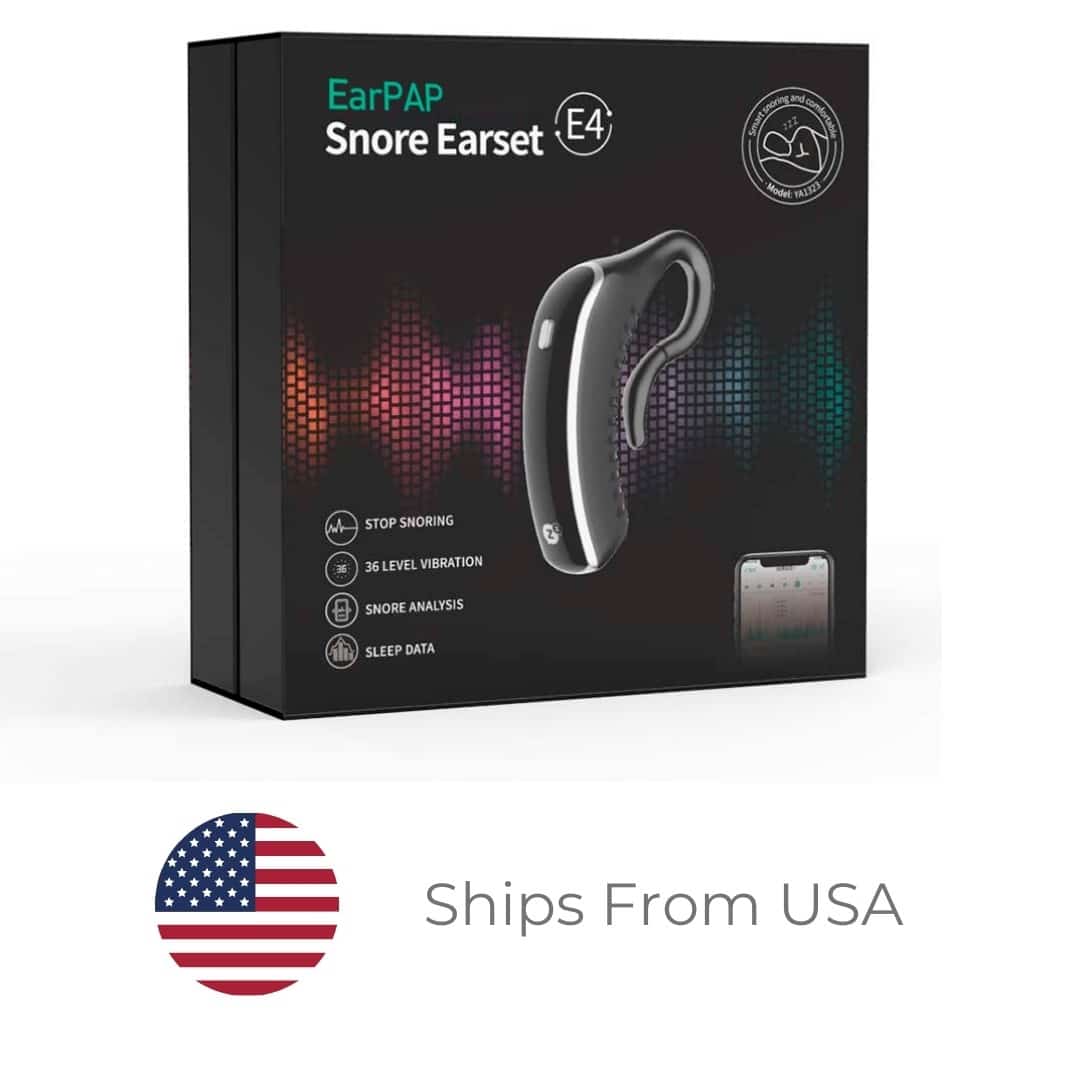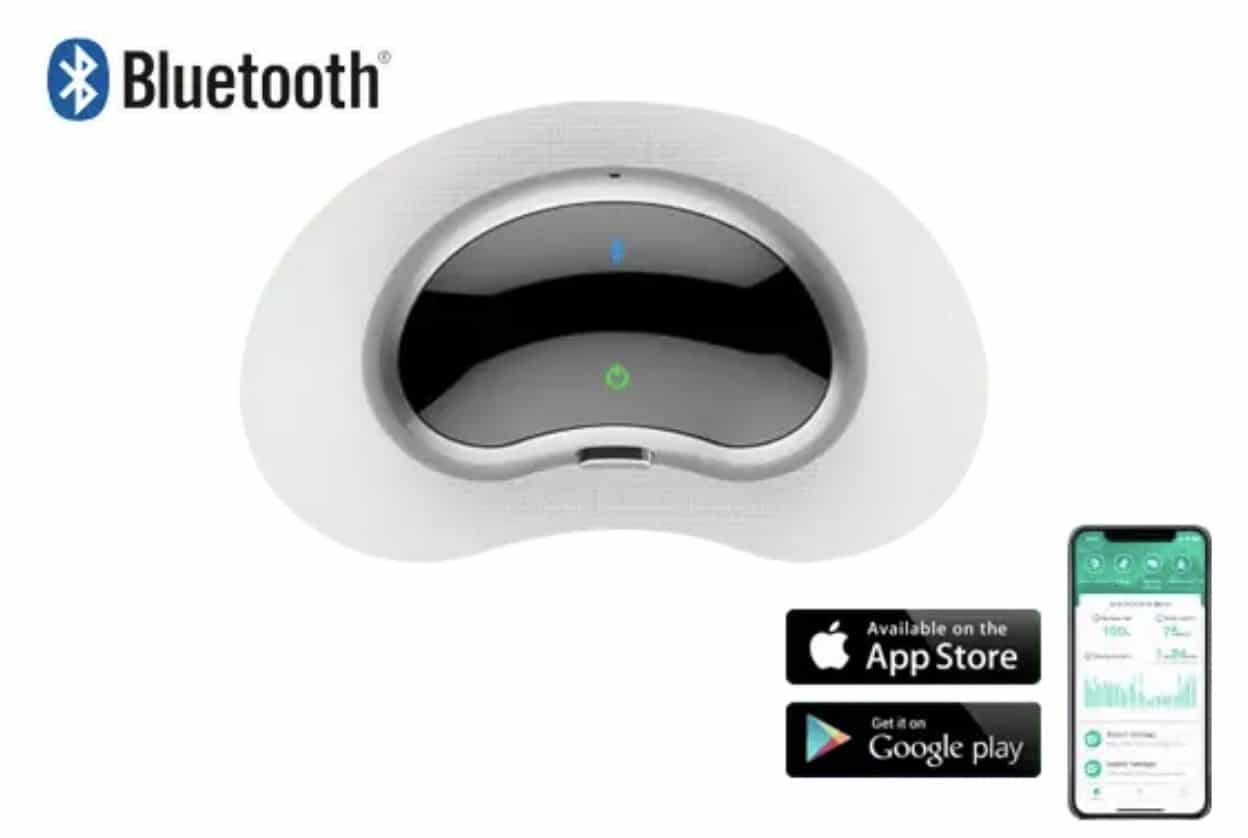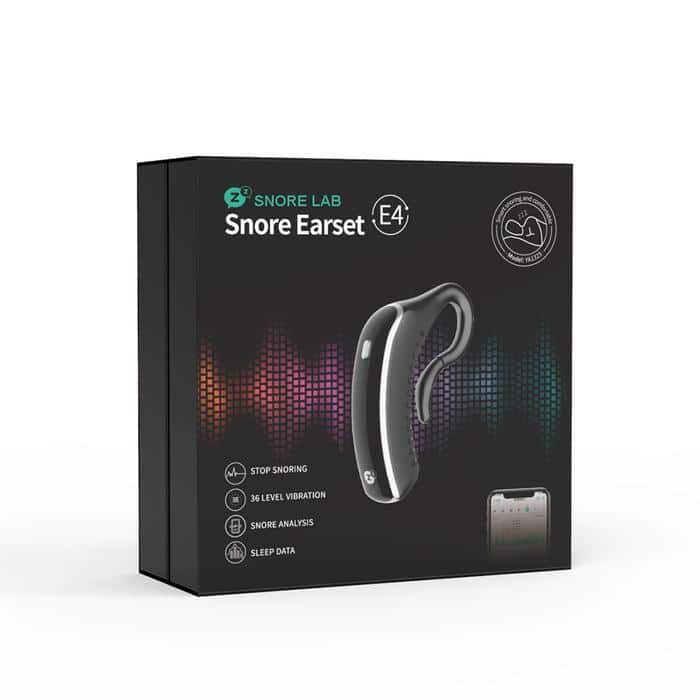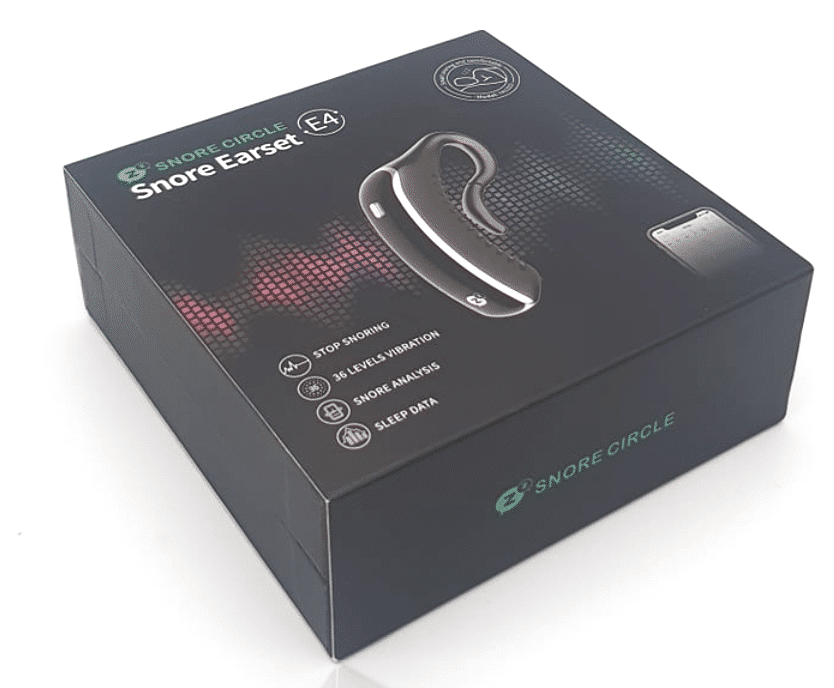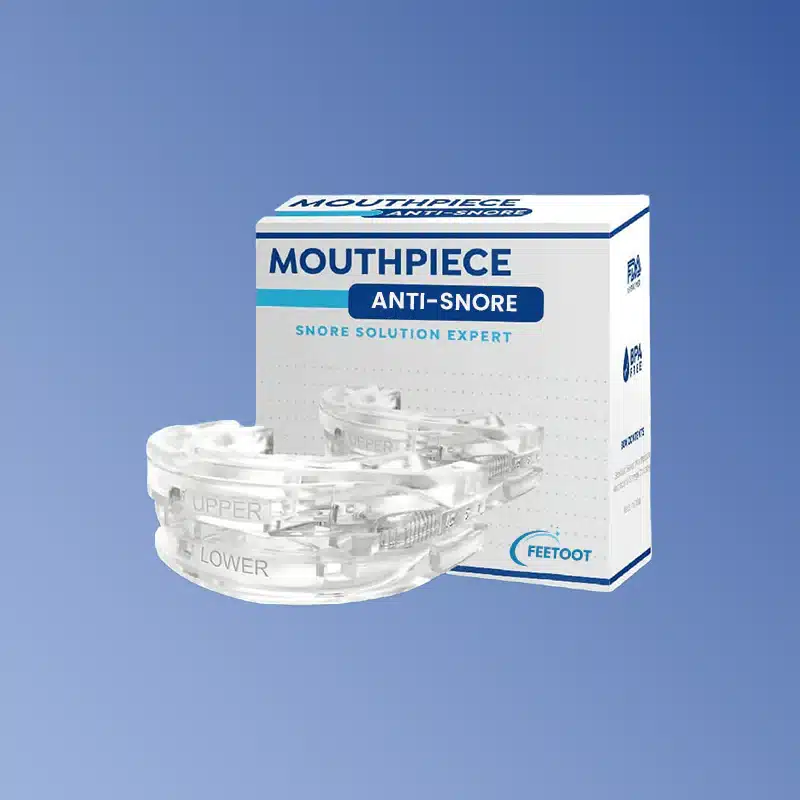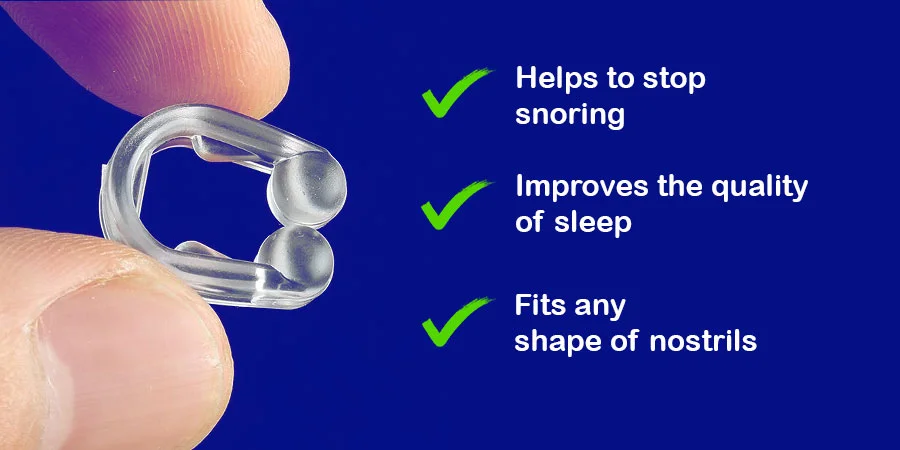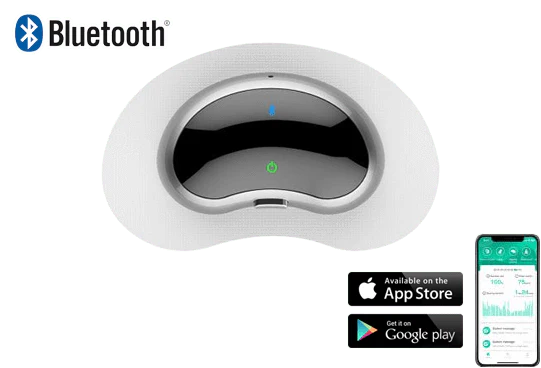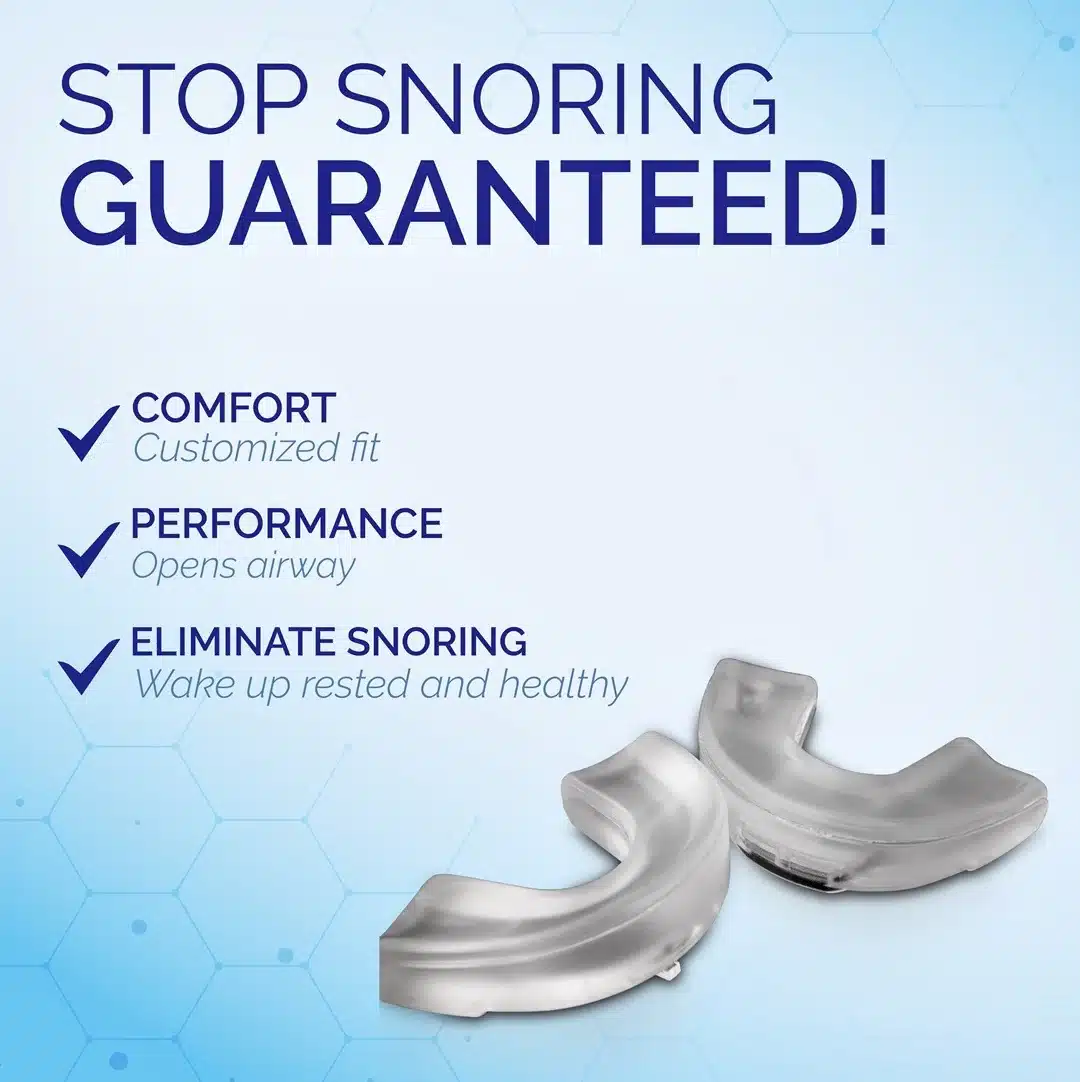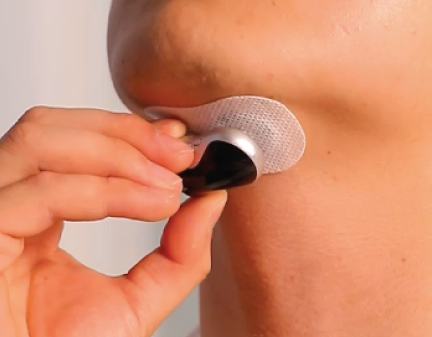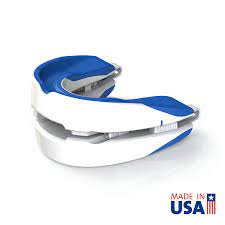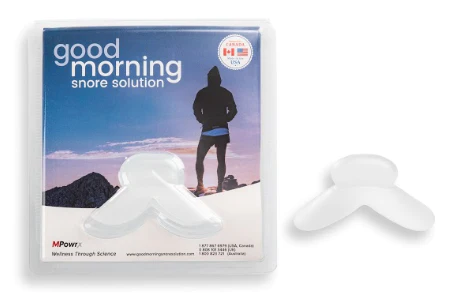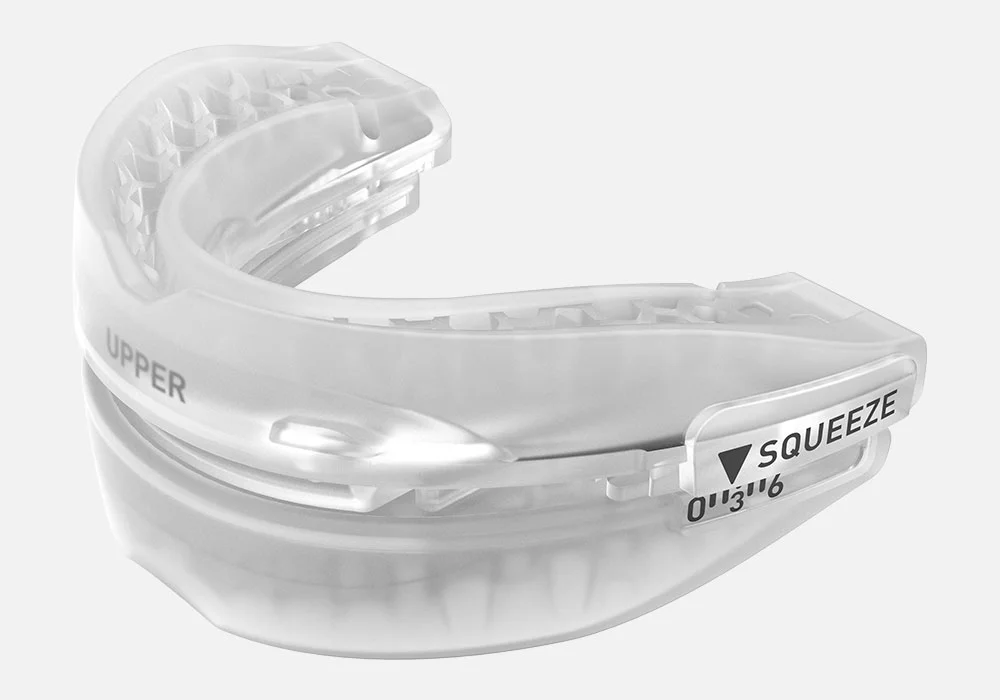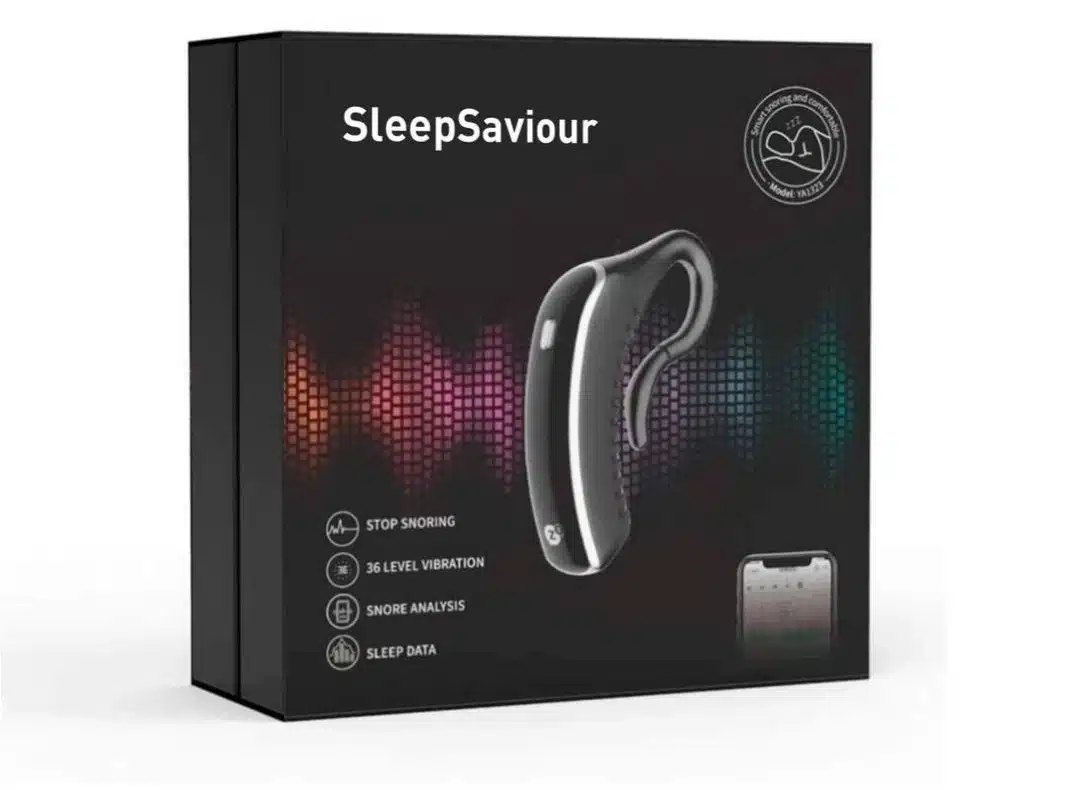Snoring can indicate health issues but can also be annoying. If it doesn’t affect your sleep quality but bothers your partner, there are remedies. We’ve researched and picked the best anti-snore devices.
Dr. Andrew R. Tomlinson says snoring results from turbulent airflow in the upper airway. It can become a health issue if it blocks the lungs, leading to obstructive sleep apnea (OSA). If you stop breathing, consult a healthcare provider.
Don’t buy expensive anti-snore devices without an assessment. Budget-friendly options can help, but choose one based on your anatomy and snoring cause. Here are our top picks after testing 35 options on the market.
Table of Contents
- 22 Best Anti-Snoring Devices
- How to Choose the Best Anti-Snoring Device
- Do Anti-Snoring Devices Really Work?
- What Are The Disadvantages Of Anti-Snoring Devices?
- Which Is The Most Effective Anti-Snoring Device?
- Symptoms of snoring
- Do I need a prescription to use a snore-stopping device?
- What risks are associated with snore-prevention devices?
- How much does an anti-snoring device cost?
- Will an anti-snore device work for all types of snoring?
22 Best Anti-Snoring Devices
1. Rhinomed Mute Anti-Snoring Nasal Dilator
The Rhinomed Mute Anti-Snoring Nasal Dilator is a comfortable solution for snoring caused by nasal congestion or blockage. It’s made from soft materials and aims to improve airflow through your nose, reducing the need to breathe through your mouth, a common cause of snoring.
Pros:
- Comfortable and soft materials.
- Adjustable with two loop-shaped dilators for a personalized fit.
- Available in various sizes, or try a trial pack for the perfect fit.
Cons:
- May not work for snoring caused by factors other than nasal congestion.
- Individual results may vary in effectiveness.
- Regular cleaning is necessary for hygiene.
2. Xshows Magnetic Anti-Snoring Ring
The Xshows Magnetic Anti-Snoring Ring is a device designed to reduce snoring during sleep. It works by stimulating specific acupuncture points on your finger, controlling throat muscle relaxation, which can cause snoring.
Pros:
- Innovative snoring solution
- Utilizes acupuncture principles
- Available in different sizes for a comfortable fit
Cons:
- Effectiveness varies depending on the finger
- Individual experiences may differ
3. ZQuiet Anti-Snoring Mouthpiece
The ZQuiet Anti-Snoring Mouthpiece tackles snoring by gently repositioning your jaw forward, which widens your airways, reducing snoring caused by relaxed throat tissues. It doesn’t mold to your teeth and is made from safe materials.
Pros:
- Unique jaw repositioning approach.
- BPA- and latex-free materials for safety.
- Offers a one-size-fits-all option.
- Starter kit includes two sizes for a better fit.
Cons:
- Fixed sizing may require an adjustment period.
- Effectiveness may vary from person to person.
You may also consider SnoreRx Mouthpiece, which has helped my father reduce snoring at night.
4. Inscape Data Anti-Snore Wristband
The Inscape Data Anti-Snore Wristband is a snoring solution that detects snoring patterns using a biosensor. It gently stimulates wrist nerves to reduce snoring without discomfort in the nose.
Pros:
- Non-invasive and user-friendly.
- Automatic shutoff after eight hours to avoid sleep disruption.
- Universal fit for most users.
Cons:
- May feel bulky for users who move around during sleep.
5. DALIVA Anti-Snore Nasal Dilators
The DALIVA Anti-Snore Nasal Dilators are silicone devices designed to reduce snoring, especially for travelers. They work by gently expanding your nasal passages, potentially decreasing snoring.
Pros:
- Made from medical-grade silicone for comfort and hygiene.
- Available in various sizes for a personalized fit.
- Reusable and includes a practical carrying case for travel convenience.
Cons:
- Not suitable for everyone; some may find them uncomfortable.
6. Farrinne Electric Anti-Snoring Solution
The Farrinne Electric Anti-Snoring Solution is a device designed to reduce snoring. It works like a nasal dilator, using soft silicone inserts to keep nasal passages open, promoting better airflow during sleep. It’s electric, rechargeable, and designed for comfort.
Pros:
- Electric and rechargeable for convenience.
- Comfortable design with soft silicone inserts.
- Improves airflow to reduce snoring.
Cons:
- Needs to be worn on the face, not suitable for stomach sleepers.
- May shift or be less effective when changing sleeping positions.
7. Smart Nora Anti-Snoring Sleeping Solution
The Smart Nora Anti-Snoring Sleeping Solution is a high-tech way to combat snoring. It comprises a pillow insert, a monitoring device called the Pebble, and an air pump. The system’s goal is to reduce snoring by adjusting your head position gently.
The Pebble sits on your nightstand, listening for snoring sounds at night. When it hears snoring, it tells the air pump to inflate and deflate the pillow insert. This subtle movement shifts your head, encouraging throat muscles to promote more natural breathing.
Pros:
- Innovative solution for snoring.
- Works well for snorers who sleep on their side or stomach.
- Uses technology to detect and address snoring.
Cons:
- Relatively high cost compared to other anti-snoring remedies.
- Effectiveness may vary from person to person.
- Requires some adjustment and getting used to.
8. Breathe Right Nasal Strips for Snoring Prevention
Breathe Right Nasal Strips are external adhesive strips designed to reduce snoring by opening nasal passageways. When applied to the outside of the nose, they create tension, making it easier to breathe through the nose.
Pros:
- Non-invasive and simple snoring solution.
- Convenient and easy removal with warm water.
- Effective for snoring related to nasal congestion or allergies.
Cons:
- Works best on dry skin; requires a dry nose for optimal adhesion.
- May irritate sensitive skin in some individuals.
9. Tuliyet Chin Strap for Snoring
The Tuliyet Chin Strap for Snoring is designed to help people with snoring and sleep-related issues. It works by supporting your jaw to keep your mouth closed during sleep, encouraging you to breathe through your nose. It’s made from comfortable nylon fabric and is compatible with CPAP machines.
Pros:
- Comfortable and breathable nylon fabric.
- Adjustable for a personalized fit.
- Suitable for CPAP machine users.
- Non-invasive solution for snoring and sleep issues.
Cons:
- Some users may find it uncomfortable.
- Effectiveness can vary from person to person.
10. SleepRex Anti-Snoring Device
The SleepRex Anti-Snoring Device is a high-tech solution designed to tackle snoring and promote better sleep. Using advanced sound recognition and bone conduction technology, SleepRex detects snoring and gently stimulates the breathing muscles to reduce or eliminate snoring during sleep, ensuring a peaceful night for both the user and their partner.
Pros:
- Effective snoring reduction through gentle muscle stimulation.
- Easy to use with adjustable intensity settings and secure straps.
- Portable design for convenient use at home or while traveling.
- Backed by clinical tests for reliability and effectiveness.
- One-year warranty for peace of mind.
Cons:
- Results may vary for individuals.
- Considered an investment due to its price.
- Initial discomfort may occur as users adjust to wearing it during sleep.
To learn more, read the full review of SleepRex Anti-Snoring Device.
11. EarPAP Smart Anti-Snoring Device
The EarPAP Smart Anti-Snoring Device is a high-tech gadget designed to tackle snoring and enhance sleep quality. It uses built-in microphones and vibration sensors to detect snoring during sleep. When snoring is detected, EarPAP employs gentle micro-vibrations to stimulate throat muscles, naturally opening the airway for smoother breathing without disrupting sleep.
Pros:
- Effectively reduces or eliminates snoring without waking the user.
- Adapts to individual snoring patterns over time for optimal effectiveness.
- Paired with the Sleeplus app for tracking sleep patterns and receiving comprehensive sleep analysis reports.
Cons:
- May be relatively pricey for some users.
- Requires a smartphone with Bluetooth capabilities for full functionality.
- Some users may experience a brief adjustment period initially.
To learn more, read the full review of EarPAP Smart Anti-Snoring Device.
12. Snore Circle
Snore Circle is a compact anti-snoring device designed to curb disruptive snoring and improve sleep quality. Worn comfortably under the chin during sleep, it utilizes advanced sound recognition technology to detect snoring. Once snoring is detected, Snore Circle emits gentle micro-impulses that stimulate throat muscles, keeping airways open and facilitating smoother breathing. This non-invasive approach ensures a peaceful night’s sleep for both the user and their partner.
Pros:
- Effectively reduces snoring with advanced sound recognition and micro-impulse technology.
- Comfortable to wear and non-invasive, promoting hassle-free sleep.
- Integrates with a companion mobile app for tracking snoring patterns and sleep data.
- Portable and lightweight design, ideal for travel and everyday use.
Cons:
- Relatively pricey investment.
- Requires a smartphone with Bluetooth connectivity for full functionality.
To learn more, read the full review of Snore Circle.
12. SnoreLAB Snore Earset
The SnoreLAB Snore Earset is a cutting-edge device designed to tackle snoring issues and enhance sleep quality. It operates by using advanced sound recognition technology to detect snoring sounds accurately while filtering out background noise. Once snoring is detected, the earset employs gentle vibrations through bone conduction to prompt subtle adjustments in breathing patterns, effectively reducing snoring without disturbing sleep. Its easy setup process, lightweight design, and compatibility with the Snore Lab app make it a convenient and effective solution for snorers seeking a better night’s sleep.
Pros:
- Accurate snoring detection
- Gentle and non-disruptive intervention
- Easy setup and compatibility with the Snore Lab app
- Lightweight and comfortable design for uninterrupted sleep
Cons:
- Effectiveness may vary for individuals
- Some users may experience initial discomfort
- Consistent use is necessary for optimal results
To learn more, read the full review of SnoreLAB Snore Earset.
13. FitSnore
FitSnore is a clever device designed to tackle snoring using smart technology. It’s a small gadget that sits comfortably on your ear, detecting snoring sounds while you sleep. When it hears you snoring, it gently vibrates to encourage you to adjust your breathing without fully waking up. Over time, with consistent use, it helps reduce snoring by improving your breathing patterns.
Pros:
- Effectively reduces snoring with regular use.
- Easy to set up and use.
- Comfortable to wear during sleep.
- No known side effects.
- Suitable for people of all ages.
- Provides insights into sleep quality through the accompanying app.
Cons:
- Results may vary from person to person.
- It might take some time to get used to wearing it.
- Can be a bit pricey for some budgets.
To learn more, read the full review of FitSnore.
14. Feetoot Mouthpiece
The Feetoot Mouthpiece is a comfortable solution designed to address sleep apnea and reduce snoring. Crafted from gentle materials, it fits snugly in the mouth during sleep. By gently moving the jaw forward, it helps keep the airway open, promoting smoother breathing and potentially reducing interruptions in sleep.
Pros:
- Comfortable fit for most users.
- Helps reduce snoring and may improve sleep quality.
- Non-invasive solution for sleep apnea.
- Easy to customize for individual comfort.
- May contribute to long-term health benefits.
Cons:
- Effectiveness may vary from person to person.
- Not suitable for everyone.
- Requires regular cleaning.
- May take time to get used to wearing during sleep.
- Can be slightly expensive for some budgets.
To learn more, read the full review of Feetoot Mouthpiece.
15. NanoSnore
NanoSnore is a small silicone device designed to tackle snoring issues by improving airflow during sleep. It consists of flexible silicone rings that are placed inside the nostrils. Using magnets, NanoSnore gently stimulates nasal nerves, opening up the nasal passages for smoother breathing. This helps prevent airway blockage, a common cause of snoring. The device is lightweight, hypoallergenic, and remains securely in place throughout the night, promoting uninterrupted sleep.
Pros:
- Improves breathing and reduces snoring.
- Promotes nasal breathing, preventing dry mouth.
- Lightweight and hypoallergenic for comfortable use.
- Cost-effective and reusable.
- Easy to insert and stays in place during sleep.
Cons:
- Some users may experience initial discomfort.
- Less effective for snoring caused by non-nasal issues.
- Limited scientific research on effectiveness.
To learn more, read the full review of NanoSnore.
16. Rest Remedies Smart Sleeper
The Rest Remedies Smart Sleeper is a lightweight device designed to combat snoring effectively. Worn comfortably under the chin during sleep, it uses advanced sound technology and gentle micro-impulses to keep airways open and reduce snoring. Its user-friendly design allows for easy setup and charging, and optional connectivity to the Smart Sleeper app provides valuable sleep insights.
Pros:
- Lightweight and comfortable to wear
- Utilizes advanced sound technology and gentle pulses to reduce snoring
- Easy setup and charging
- Optional app connectivity for sleep tracking
Cons:
- May require time to see noticeable results
- Potentially necessitates lifestyle adjustments
- Pricey compared to some alternatives
To learn more, read the full review of Rest Remedies Smart Sleeper.
17. Snore Owl
Snore Owl is a simple yet effective oral device designed to tackle snoring and mild sleep apnea. It works by gently moving the lower jaw forward just 0.1 inches, which opens up the airway during sleep, allowing for smoother breathing. This innovative design eliminates snoring and alleviates symptoms of mild sleep apnea, ensuring a restful night’s sleep for both users and their partners.
Pros:
- Effectively stops snoring and improves sleep quality.
- Non-invasive solution without the need for surgeries or medical procedures.
- Customizable fit for maximum comfort using Halstrom Hinge™ technology.
- Backed by over ten years of medical research, ensuring reliability and efficacy.
Cons:
- May not be suitable for severe cases of sleep apnea.
- Some users may experience an initial adjustment period.
- Requires regular cleaning and maintenance for hygiene and longevity.
- Results may vary, and individual experiences may differ.
To learn more, read the full review of Snore Owl.
18. Snortium Pro
Snortium Pro is a small yet powerful device designed to tackle snoring and improve sleep quality. It works by placing electrodes under the chin during sleep. These electrodes detect snoring sounds and gently stimulate muscles to open airways, regulate breathing, and reduce snoring without disturbing sleep. With a success rate of 95%, Snortium Pro offers a non-invasive and effective solution for snoring woes.
Pros:
- High success rate of 95%
- Non-invasive and comfortable to use
- Improves overall sleep quality
- Cost-effective compared to other treatments
- Portable for use while traveling
- Easy setup and automatic operation
Cons:
- Individual results may vary
- Not intended for treating sleep apnea or other medical conditions
To learn more, read the full review of Snortium Pro.
19. VitalSleep
VitalSleep is a snoring mouthpiece designed to tackle snoring by adjusting the position of the jaw to open up the airway, reducing throat vibrations that cause snoring sounds. It offers a personalized fit by molding to the user’s teeth, ensuring comfort throughout the night. Its adjustable design allows users to find the optimal position for effective snoring reduction, promoting quieter and more restful sleep.
Pros:
- Addresses the root cause of snoring by adjusting the jaw position
- Offers a personalized fit for comfort
- Adjustable design allows for optimal positioning
- Positive feedback from users regarding snoring reduction
- Backed by a 60-night money-back guarantee and one-year warranty
Cons:
- Some users may experience an adjustment period
- Results may vary from person to person
To learn more, read the full review of VitalSleep.
20. Good Morning Snore Solution
The Good Morning Snore Solution is a small mouthpiece designed to address snoring by focusing on the position of the tongue during sleep. It gently suctions onto the tip of the tongue, preventing it from collapsing into the throat and thus keeping the airways open. This reduces the vibrations that cause snoring sounds, potentially leading to quieter nights and improved sleep quality.
Pros:
- Simple design and easy to use.
- Clinically validated effectiveness.
- Non-invasive, no masks or straps required.
- Travel-friendly due to its compact size.
- Positive customer feedback highlighting quieter nights.
- Offered by a reputable company with regulatory approvals.
Cons:
- Some users may experience a brief adjustment period.
- Not suitable for everyone, particularly those with certain medical conditions.
- Results can vary from person to person.
To learn more, read the full review of Good Morning Snore Solution.
21. SnoreRx Mouthpiece
The SnoreRx Mouthpiece is a specialized device designed to help reduce snoring. It works by gently moving the lower jaw forward during sleep, which helps keep the airway open and reduces the vibrations that cause snoring. This simple adjustment addresses the relaxation of throat tissues, a common cause of snoring, and can lead to improved sleep quality for both the user and their partner.
Pros:
- Customizable fit for comfort
- Addresses root cause of snoring
- Made from FDA-approved materials
- Durable design with a lifespan of up to 15 months
- Potential relief for tongue and throat obstruction-related snoring
Cons:
- Effectiveness varies among users
- May not work as well for nasal congestion-related snoring
- Some users may need an adjustment period
- Reports of delays in customer service response times
To learn more, read the full review of SnoreRx Mouthpiece.
22. Sleep Saviour Earset
The Sleep Saviour Earset is a lightweight device designed to combat snoring and promote better sleep. It works by detecting snoring sounds with advanced sensors and then gently stimulating throat muscles through bone conduction technology. This stimulation helps to keep airways open and reduces or eliminates snoring, allowing for a quieter and more restful night’s sleep.
Pros:
- Non-invasive and comfortable to wear.
- Easy to use with no complicated setup.
- Tracks sleep patterns with the Sleeplus app for insights.
- Effective for snorers of all sleeping positions.
- No harmful side effects associated with its use.
Cons:
- Can be relatively expensive compared to other snoring solutions.
- Some users may experience initial discomfort during adjustment.
- Effectiveness may vary from person to person.
- Requires regular cleaning and maintenance for optimal performance.
To learn more, read the full review of Sleep Saviour Earset.
How to Choose the Best Anti-Snoring Device
When searching for an anti-snoring device to put an end to those noisy nights and enjoy a peaceful sleep, there are several crucial factors to consider. These considerations can help you make an informed choice and select a device that is tailored to your specific snoring issues.
-
Assess the Severity: The first step is to gauge the severity of your snoring. Determine whether it’s a mild, occasional annoyance or a more serious problem that could be linked to obstructive sleep apnea (OSA). If you suspect OSA, it’s essential to consult a healthcare professional for a proper diagnosis and guidance.
-
Type of Device: Anti-snoring devices come in various types, each targeting different aspects of snoring. Consult with your doctor or a sleep specialist to identify the device best suited to your needs. Common options include:
- Mandibular Advancement Devices (MADs): These reposition the jaw to keep the airway open.
- Tongue Retention Devices (TRDs): These prevent the tongue from collapsing backward.
- Nasal Devices: Options like nasal strips and nasal dilators aim to improve airflow through the nasal passages.
- Positional Therapy Devices: Some devices discourage sleeping in positions that trigger snoring.
- CPAP Machines: For severe sleep apnea, continuous positive airway pressure (CPAP) machines are often recommended.
-
Comfort and Fit: An effective anti-snoring device should be comfortable to wear or use during sleep. It should fit properly and not cause discomfort or pain.
-
Ease of Use: Consider how easy it is to use and maintain the device. Some may require regular cleaning, adjustments, or replacements.
-
Reusability: Determine if the device is disposable or reusable. Single-use devices may become costly over time and have environmental implications.
-
Safety: Ensure that the device is safe to use and does not pose any health risks. If you have underlying medical conditions, consult with a healthcare provider for guidance.
-
User Reviews: Read reviews and testimonials from others who have used the device. Real-world experiences can provide valuable insights into its effectiveness and comfort.
-
Cost: Compare the cost of the device with your budget and consider any potential long-term expenses.
-
Consult a Healthcare Professional: Ultimately, it’s advisable to consult with a healthcare professional, such as an ear, nose, and throat (ENT) specialist or a sleep specialist. They can assess your snoring issues, recommend appropriate solutions, and guide you in selecting the most suitable anti-snoring device for your specific needs.
By carefully considering these factors and seeking professional advice, you can increase your chances of finding an anti-snoring device that addresses your snoring problem effectively, leading to quieter, more restful nights.
Do Anti-Snoring Devices Really Work?
Anti-snoring devices can be effective, but their success varies based on factors like the cause and severity of snoring. While no device guarantees complete snoring elimination, many people have found relief.
The effectiveness depends on the device’s design and how well it targets the issue. Devices like mandibular advancement devices (MADs) and tongue retention devices (TRDs) reposition the jaw or tongue to keep the airway open, often helping with anatomical or positional snoring. Nasal strips and dilators enhance nasal airflow and can help with congestion-related snoring.
For the best results, consult a healthcare professional to identify the cause of your snoring and choose the right device. Personally, I use the Rest Remedies Smart Sleeper, which helps make my airways stay open and reduce snoring.
What Are The Disadvantages Of Anti-Snoring Devices?
Anti-snoring devices can be effective in reducing snoring for many individuals, but they are not without potential disadvantages. It’s essential to be aware of these drawbacks when considering the use of such devices:
-
Discomfort: Some anti-snoring devices, especially those that reposition the jaw or tongue, may cause discomfort or soreness initially. Users may need time to adapt to these devices.
-
Fit Issues: Getting the right fit can be challenging. Ill-fitting devices may not work as intended and could lead to discomfort or even worsen snoring.
-
Ineffectiveness: Not all anti-snoring devices work for everyone. What works for one person may not work for another due to variations in the causes and severity of snoring.
-
Initial Costs: Some devices can be expensive, especially custom-made ones. Cost may deter some individuals from trying certain options.
-
Maintenance: Many devices require regular cleaning and maintenance, which can be cumbersome.
-
Compliance: Some users may find it challenging to consistently use these devices throughout the night, reducing their effectiveness.
-
Limited Efficacy for Severe Sleep Apnea: Anti-snoring devices may not be suitable for individuals with severe sleep apnea. In such cases, more advanced treatments like CPAP machines may be necessary.
-
Side Effects: In rare cases, users may experience side effects such as excessive salivation, jaw pain, or dental issues with certain devices.
-
Environmental Impact: Some disposable devices contribute to plastic waste, which can be a concern for environmentally conscious individuals.
Which Is The Most Effective Anti-Snoring Device?
The most effective anti-snoring device varies from person to person. It depends on individual needs. It could be a supportive pillow, weight loss, or a nasal dilator for a deviated septum.
Symptoms of snoring
Here are the signs of Snoring:
- Tossing and turning while sleeping
- Waking up with a dry or sore throat (from mouth-breathing)
- Daytime tiredness and fatigue
- Morning headaches
- Moodiness or irritability
- Trouble concentrating
Do I need a prescription to use a snore-stopping device?
You generally don’t need a prescription for most anti-snore devices. However, prescription is required for MADs, TSDs, and CPAP machines. It’s still a good idea to consult your doctor before using any of these products, especially if you have health conditions, to understand potential risks.
What risks are associated with snore-prevention devices?
Snore-prevention devices vary in risks. Many are safe, but some may lead to headaches, discomfort, jaw pain, skin irritation, or excessive salivation.
How much does an anti-snoring device cost?
Anti-snoring device prices vary widely. Nasal strips and nose clips start at $5, while CPAP machines can cost over $500.
Will an anti-snore device work for all types of snoring?
No, non-prescription snore-prevention devices are for mild-to-moderate snoring. Prescription devices like MADs, TSDs, and CPAP machines are for severe snoring.

